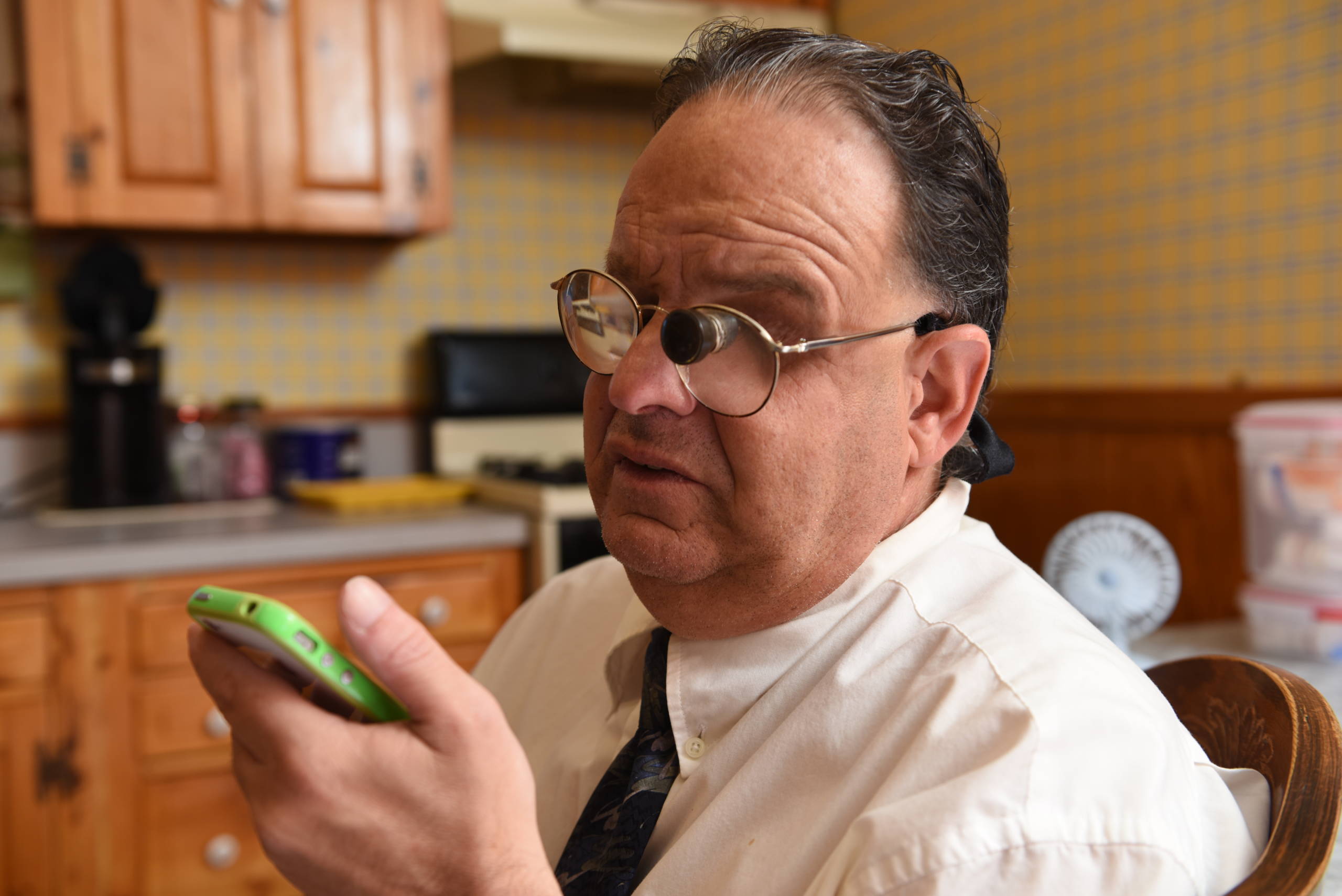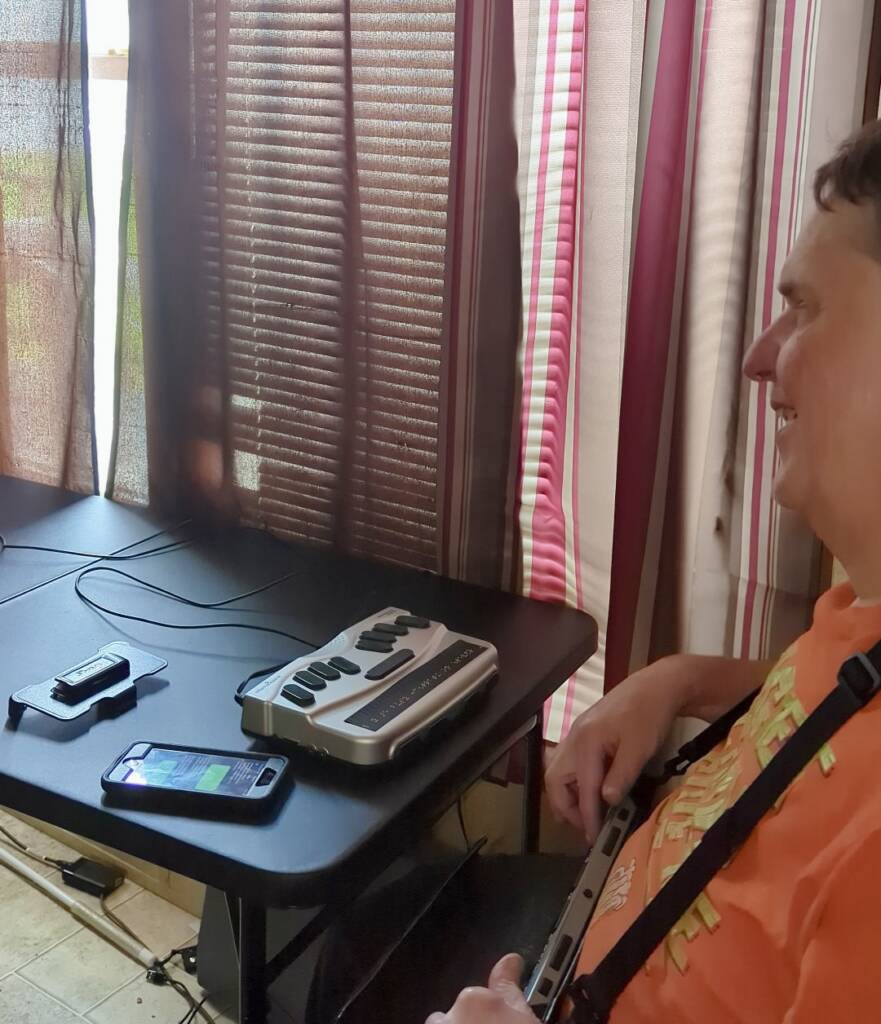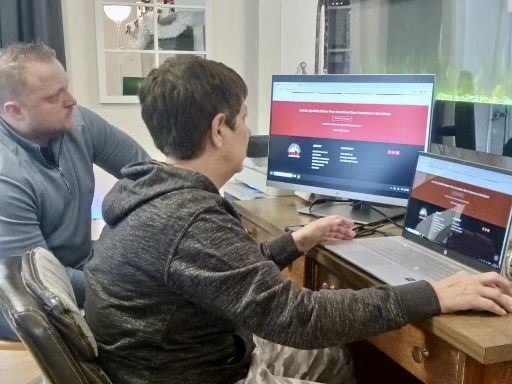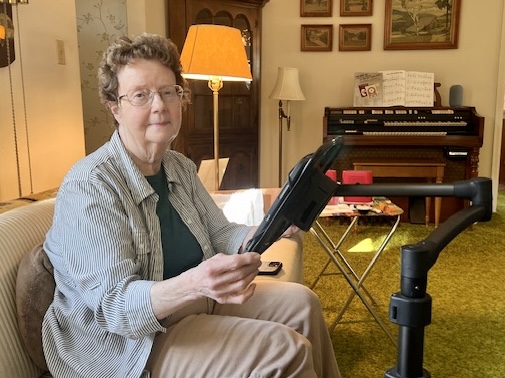Brian Coppola is a man who believes in taking action. A native of Massachusetts, the 50-year-old Methuen resident has advocated on behalf of the causes he supports by testifying to members of the state legislature, distributing petitions and writing letters to lawmakers.
Brian has experienced limited vision and hearing since birth. As a deaf-blind person, Brian says advocating for himself, and not just others, is an important priority as well. “Self-advocacy is critical for people who are deaf-blind,” he says. “To help others, we have to look out for ourselves as well.”
Brian discovered iCanConnect while attending the Baystate Council of the Blind Conference in 2013. He was familiar with the possibilities that assistive technology offer due to his previous work as an assistive technology intern and assistant at Northern Essex Community College.
What attracted Brian most to iCanConnect was the new level of independence that assistive communications technology could provide.
“The shortcomings of isolation were you had to depend on other people to get out into the community,” says Brian. “It was hard to communicate with other people over the phone.”
Through iCanConnect, Brian received an iPad, a Clarity phone, and a ZoomText keyboard, as well as training support.
“What i like about iCanConnect is that not only does it break the isolation, it allows a deaf-blind person to communicate more effectively and independently.”
Brian uses the communications equipment provided by iCanConnect to advocate for the deaf-blind community and other causes, as well as to maintain relationships with family and friends.
“I have family in the area and family scattered,” he says. “I use email through my computer with the ZoomText keyboard and use email sometimes on my iPad. I do social media on my iPad. I share pictures on Facebook. I’m able to keep in touch with them in a regular basis.”
Brian says people of all backgrounds and abilities can benefit from what iCanConnect offers.
“If people can actually see how a deaf-blind person can go about life through the use of assistive communications technology, they would see that a deaf-blind person can function in the community just the same as their non-deaf and blind peers.”
To learn more about the iCanConnect program, visit http://icanconnect.org.



